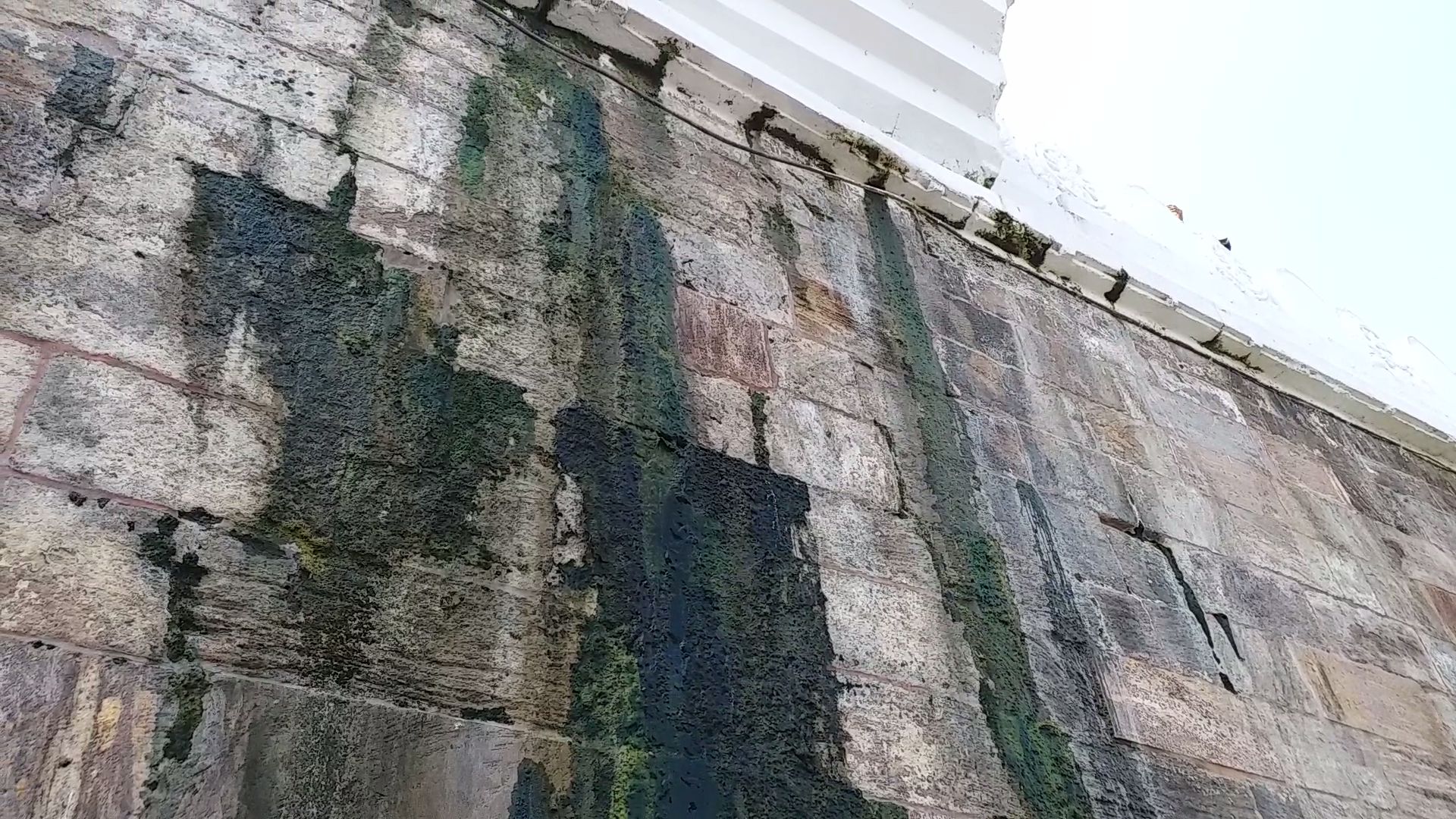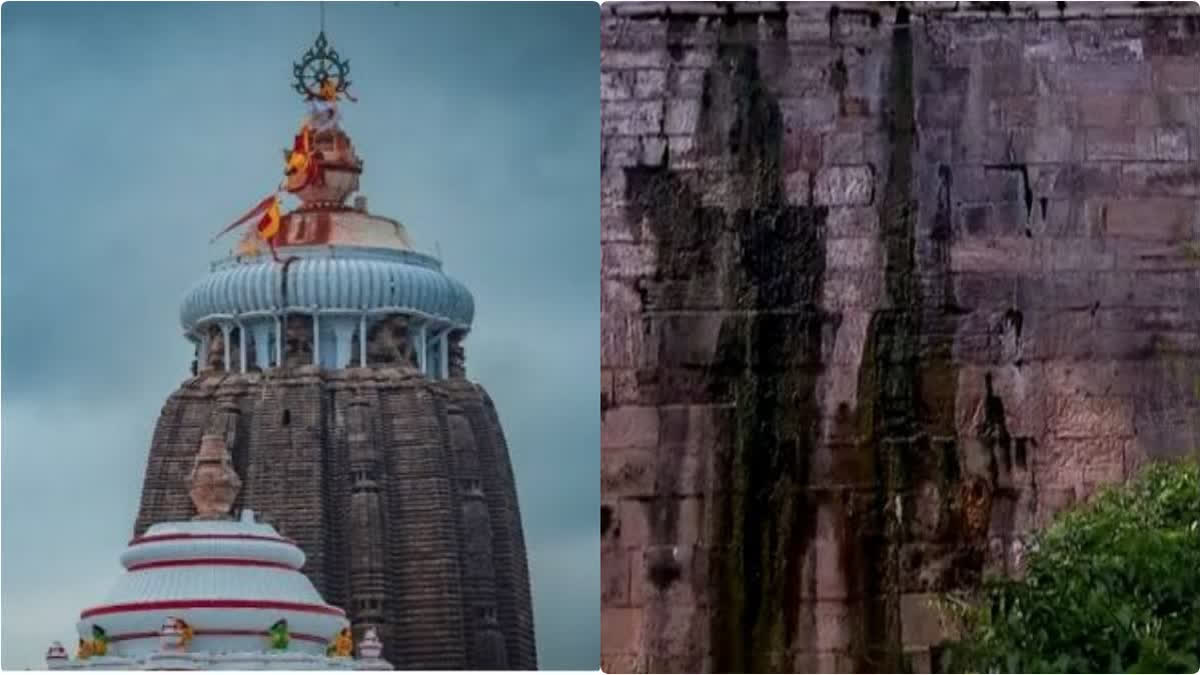Puri: Structural damage to the Meghanad Wall of Puri’s Jagannath Temple has drawn strong criticism from devotees, intellectuals, and temple staff, who expressed concern over the wall’s deteriorating condition. The wall, which encircles the temple and is steeped in historical significance, now faces the risk of collapse due to water leakage, moss growth, and cracks—particularly close to the temple’s Lion Gate.
In response, Chief Administrator of Shree Jagannath Temple Administration (SJTA) Arabinda Kumar Padhee, has written to the Archaeological Survey of India (ASI), requesting immediate repairs and a scientific survey of the structure to ensure its long-term preservation. In his letter, Padhee emphasized the need for not just patchwork but a sustainable solution that would safeguard the wall from future wear and tear. Additionally, he requested a thorough scientific analysis to assess the wall’s condition and identify long-term solutions.
The Meghanad Wall, which serves as a protective enclosure around the revered temple, has shown signs of distress, with visible cracks and water infiltration reported in several sections. Reports indicate that water from Anand Bazaar’s handwashing area is not being directed into proper drainage, instead seeping through cracks in the Meghanad Wall itself. Over time, this misdirected water has caused portions of the wall to weaken, with moss accumulating on its surface. Despite daily visits by temple officials and ASI officers, no effective action has been taken.

Observers attribute delays in addressing the issue to a lack of coordination between ASI and the temple’s administrative body, sparking anxiety among devotees and stakeholders concerned about the wall’s stability and the temple’s structural integrity.
Jagannath Devotees and Experts Question ASI’s Silence
Several prominent figures have questioned the alleged inaction of the Archaeological Survey of India (ASI), which, under the Ancient Monuments and Archaeological Sites and Remains (AMASR) Act, is responsible for the preservation of heritage sites. Senior lawyer Sarat Rayguru highlighted this issue, stating, “The temple is a heritage monument protected by the AMASR Act. ASI must take immediate steps to repair the Meghanad Wall. Their silence is unacceptable when visible damage and water seepage threaten the wall’s stability.”
Temple servitor Kirti Prakash Das Mohapatra also voiced dismay, noting that, despite ASI’s longstanding involvement in the temple’s upkeep, issues like water leakage remain unaddressed. “This is a sad situation. For years, ASI has been active within the temple premises, yet the Meghanad Wall continues to suffer from water damage.”
ASI Responds to Criticism
Responding to public concerns, Jyoti Ranjan Pradhan, ASI’s Puri Circle officer, explained that water from Anand Bazaar’s handwashing area is indeed affecting the Meghanad Wall. He said, “For nearly a year and a half, we have been writing to the temple administration to address the drainage problem in Anand Bazaar. This water is not going into the designated drain but seeping into the Meghanad Wall.”
Law Minister and Temple Administration React
Law Minister Prithviraj Harichandan assured the public that steps would be taken to repair the wall and prevent future issues. He remarked, “Repairs will be carried out without delay, and measures implemented to prevent similar issues in the future. ASI’s technical team is closely monitoring the situation.”
After media coverage spotlighted the wall’s condition, the temple administration took preliminary steps to clean the affected areas. Devdrat Sahu, the temple’s development officer, said, “Water from the handwashing areas in Anand Bazaar is seeping into the Meghanad Wall due to drainage issues. We are prioritizing the completion of drainage repairs to prevent further leakage.”
Temple Administration Tackles Initial Repairs
While awaiting ASI intervention, the temple administration has already initiated certain preventive measures. The temple’s construction department has been working to manage water seepage externally to reduce immediate pressure on the Meghanad Wall. Efforts include redirecting drainage from Anand Bazaar—where food offerings are prepared and served—and addressing water runoff from the temple’s handwashing areas.
A tender has also been floated to overhaul the drainage system within Anand Bazaar, aiming to minimize water exposure to the Meghanad Wall and prevent further weakening. These interim measures are designed to mitigate the issue, but officials stress that ASI’s involvement is essential for a more durable solution.
Read More



